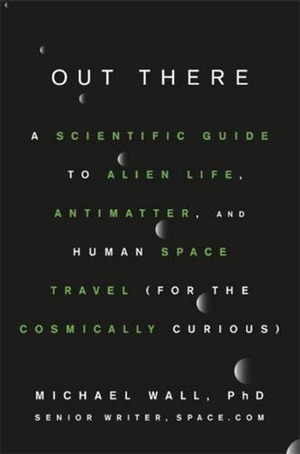Review: Out Thereby Jeff Foust
|
| “If your project ends up being the one that finds something, people will remember and laud you forever, no matter how many autoworkers and arthritic Walmart greeters you may have put out of work with your mergers and acquisitions along the way,” he writes. |
Wall, a senior writer at Space.com who has a Ph.D. in biology, tackles the question of life in the universe in two sections. The first, “What’s Out There?”, examines the search for life beyond Earth, covering topics ranging from panspermia to the search for extraterrestrial intelligence. A second, shorter section, “Getting Out There,” looks at extending life from Earth into the cosmos, from settlement of the Moon and Mars to humanity’s long-term future.
Wall treats the subject of astrobiology seriously, but he doesn’t take it, or himself, too seriously. What sets Out There apart is a breezy tone filled with humor. In one passage, he advocates for billionaires to fund astrobiology research efforts, like Yuri Milner and the late Paul Allen have done. “If your project ends up being the one that finds something, people will remember and laud you forever, no matter how many autoworkers and arthritic Walmart greeters you may have put out of work with your mergers and acquisitions along the way,” he writes.
Elsewhere, when discussing the Fermi Paradox regarding the lack of evidence of extraterrestrial beings, he notes explanations for it are, in essence, trying to explain extraterrestrial psychology. “And that’s not the most promising path for a breakthrough: getting inside the heads of super-advanced aliens is beyond us, at least until we stop devoting most of our creative energies to meme generation. (Thank you for indulging this ‘get off my lawn’ moment.)”
Sometimes that humor is a little too much (life and evolution, at one point, are described as being “as inseparable as Goldie Hawn and Kurt Russell”) but it does help make a sprawling field that deals with some of the biggest questions facing humanity much more accessible. The topics discussed in the book are primarily intended for newcomers to the field; regular readers of this publication are probably already familiar with many of the issues about the search for life brought up in the book. Readers, though, will appreciate why those questions remain unanswered, even by the scientists devoting their careers to the field.
Note: we are temporarily moderating all comments subcommitted to deal with a surge in spam.
